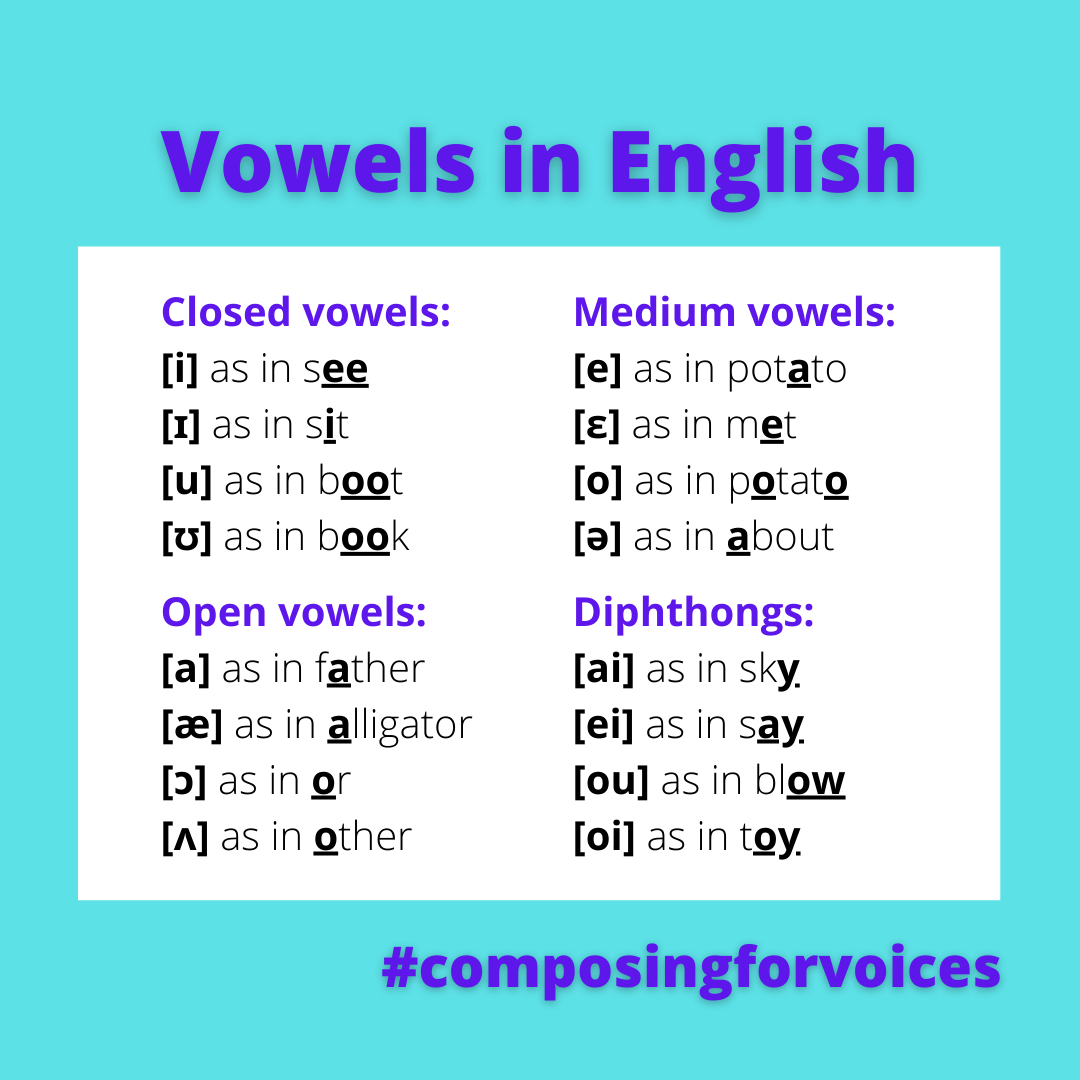|
Listen to any art song, opera aria, choral work, or your favorite pop song, and you'll find something in common: dramatic high notes. Those awesome moments in a piece of music that create drama and intensity by singing in the upper register. The trouble is, sometimes, they're written in a way that causes this effort to create a real MOMENT fall FLAT. Let me explain. To sing a high note, a singer's mouth needs to be open tall in order to get the best sound and have the best chance of singing it with ease. And because singers perform text, it makes a HUGE difference what word you've chosen to set for that dramatic moment. That's because words are combinations of vowels and consonants, and because singers sustain vowels for most of the length of any given pitch. 𝘈𝘯𝘥 𝘯𝘰𝘵 𝘢𝘭𝘭 𝘷𝘰𝘸𝘦𝘭𝘴 𝘢𝘳𝘦 𝘦𝘲𝘶𝘢𝘭𝘭𝘺 𝘴𝘶𝘪𝘵𝘦𝘥 𝘵𝘰 𝘩𝘪𝘨𝘩 𝘱𝘪𝘵𝘤𝘩𝘦𝘴. Here's why: vowels can be open, medium, or closed. Try this: Speak the words on the vowel chart slowly while watching your mouth in a mirror. Pay attention to what you see and feel. Notice that closed vowels involve closure of the mouth space either through lip rounding (boot, book) or through activation of the tongue into a little arch (see, sit). For the medium vowels, the lips are a little less rounded (potato) and the tongue is less arched (potato, met) or fairly neutral (about). And for the open vowels, lip rounding is even less (or), and the tongue is pretty much at rest in the bottom of the jaw (alligator, father, other). See why they’re called open vowels? There’s literally less going on in the mouth and around the lips! Now that you’ve tried this out, let me give you a handy principle to keep in mind: A property of singing is that high notes require a taller mouth than low ones. As singers ascend in range, we drop our jaws and lift the yawn space (soft palate) behind our upper molars to create more vertical space. And that’s why the open vowels can be sung on high notes more easily & beautifully while also being better understood by the audience! Let's take this a littler further. Diphthongs are single syllables that combine two vowel sounds (di = two, phthong = sound). They are super common in English. Try this: Slowly speak the diphthongs and identify which components are open, medium, and closed. Which diphthongs will be more successful on a high note? Let me know in the comments! My friend Danielle Kuntz, harpist asked a great question on Twitter today: How do we support and encourage living composers? I love this question, and it's one I get a lot. Performers, ensemble directors, music teachers, and music fans know that the odds have been stacked against living composers for a while. They want to take meaningful action, and they also know they can't do it all at once or all on their own. Many performers I talk to get stuck because they want to offer composers big commissions but don't have a dedicated funding source for that. It doesn't have to be hard to support living composers. You can get started right now. It doesn't have to cost a thing. Here's a list of 21 ways you can support living composers:
What did I miss? Get in touch and let me know YOUR favorite ways are to support living composers. |

 RSS Feed
RSS Feed